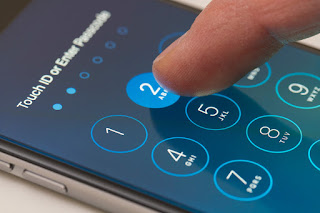Do I Have To Give Police My Cellphone Password?
Do I Have To Give Police My Cellphone Password?
This blog is brought to you by LawyerSelect.ca
As technology advances, both law enforcement and
criminals will seek to use it to gain an advantage on the other. The duel
between police and criminals is the embodiment of the notion of ebb and flow.
One of them gains an upper hand temporarily, while the other rushes to catch
up. This couldn’t be more true than it is for the case of cell phones. In
August, 2016, a group made up of all the Canadian Chiefs of Police met and
passed a non-binding resolution that called for the enactment of a law that
empowers police to unlock digital devices. For some time now, police officials
have sounded off complaints that high levels of criminal activity is going
undetected, and the evidence of its commission is stored on encrypted mobile
phones.
As it currently stands, there is no Canadian law that
requires you to provide a police officer with the password to your mobile
device. Police often look for corroborative evidence to the crime they're investigating you for. Why would you help them by incriminating yourself? In fact, even if your phone was not secured by a password, police would still need your consent to access it. Otherwise, they'd need a search warrant.
If you've been charged with a criminal offence, it's usually a wise decision not to provide them with a statement. Instead, contact us at LawyerSelect.ca, and we'll put you in touch a top-rank Criminal Lawyer who can defend you against the charges. We'll personally tailor the referral so that the Criminal Lawyer we connect you with fits your budget, speaks your language, lives in your area, and has the level of experience you're looking for.
If you've been charged with a criminal offence, it's usually a wise decision not to provide them with a statement. Instead, contact us at LawyerSelect.ca, and we'll put you in touch a top-rank Criminal Lawyer who can defend you against the charges. We'll personally tailor the referral so that the Criminal Lawyer we connect you with fits your budget, speaks your language, lives in your area, and has the level of experience you're looking for.
The Evolution of Canadian Privacy Law:
Back in 2014, the Supreme Court of Canada decided a
landmark case that dealt with privacy issues stemming from internet usage data.
The Court ruled that individuals have a reasonable expectation of privacy in
their internet usage information. This was a huge blow to law enforcement who,
until that point, were readily requesting that sort of information from
Internet Service Providers (ISPs) without obtaining a warrant. Now any such
requests for data must be obtained by a warrant.
Privacy advocates hail the case as a real and concerted
effort to protect the privacy of Canadians, while law enforcement officials see
the new law as posing real challenges in being able to protect younger victims
who may fall prey to internet pedophiles.
What Will Canada’s Privacy Laws Look Like in the Future?
The subtle balancing act of protecting individual
liberties while enforcing the criminal law is something that’s not new to
Canada. Since the widespread proliferation of the internet in the mid to late
1990s, law enforcement has tried to adapt to the changing criminal
methodologies while maintaining the privacy rights of private citizens. While
the future will almost certainly bring advancement in personal electronic
devices and private communications, the laws may have to change with the
shifting winds.




Comments
Post a Comment